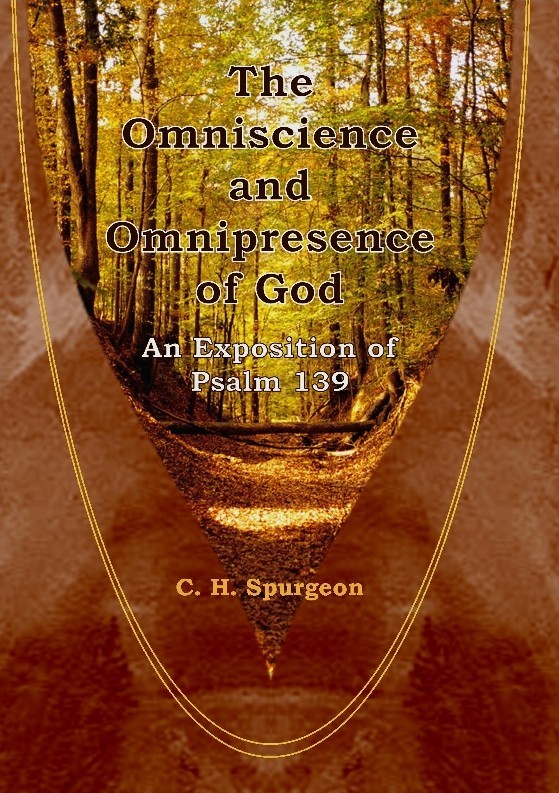
The Omniscience and Omnipresence of God - An Exposition of Psalm 139
By Charles Spurgeon
Extract
The Omniscience and Omnipresence of God (An Exposition of Psalm 139)
C. H. Spurgeon
One of the most notable of the sacred hymns. It sings the omniscience and omnipresence of God, inferring from these the overthrow of the powers of wickedness, since he who sees and hears the abominable deeds and words of the rebellious will surely deal with them according to his justice. The brightness of this Psalm is like unto a sapphire stone, or Ezekiel’s “terrible crystal;” it flames out with such flashes of light as to turn night into day. Like a Pharos, this holy song casts a clear light even to the uttermost parts of the sea, and warns us against that practical atheism which ignores the presence of God, and so makes shipwreck of the soul.
Title. To the Chief Musician. The first time this title occurred was in Psa. 109:1-31. This sacred song is worthy of the most excellent of the singers, and is fitly dedicated to the leader of the Temple Psalmody, that he might set it to music, and see that it was devoutly sung in the solemn worship of the Most High. A Psalm of David. It bears the image and superscription of King David, and could have come from no other mint than that of the son of Jesse. Of course the critics take this composition away from David, on account of certain Aramaic expressions in it. We believe that upon the principles of criticism now in vogue it would be extremely easy to prove that Milton did not write Paradise Lost. We have yet to learn that David could not have used expressions belonging to “the language of the patriarchal ancestral house.” Who knows how much of the antique speech may have been purposely retained among those nobler minds who rejoiced in remembering the descent of their race? Knowing to what wild inferences the critics have run in other matters, we have lost nearly all faith in them, and prefer to believe David to be the author of this Psalm, from internal evidences of style and matter, rather than to accept the determination of men whose modes of judgment are manifestly unreliable. …